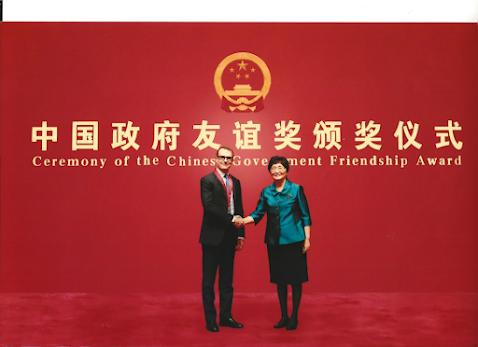Forum on Marine Science and Technology Innovation for Sustainable Development Goals by 2030 Concluded | CBCGDF’s Efforts in Global Marine Protection
The Forum on Marine Science and Technology Innovation for Sustainable Development Goals by 2030 successfully concluded in Sanya City, south China's Hainan Province on August 25th, 2024.
The forum, running from August 23 to 25, aimed to promote research on blue carbon and coastal wetland and sustainable development of coastal communities, contributing to the achievement of the United Nations’ 2030 Sustainable Development Goals.
The China Biodiversity Conservation and Green Development Foundation (CBCGDF), a leading Chinese NGO and an observer to international conventions such as the Convention on Biological Diversity, the International Seabed Authority, CITES, and the Ramsar Convention, has been tirelessly working towards the protection and sustainable management of marine and coastal ecosystems.
1. Mangrove Conservation Efforts
CBCGDF has taken a proactive stance in mangrove conservation, recognizing their ecological importance and the threats they face from human activities. One of the key initiatives is the establishment of a dedicated mangrove conservation fund. This fund aims to support various conservation activities, from scientific research to community-based protection projects.
In response to incidents of mangrove destruction in coastal areas, CBCGDF has not hesitated to use legal avenues to seek justice and accountability. For instance, they have filed environmental public interest lawsuits addressing the degradation of mangrove habitats. Notably, CBCGDF took legal action against the Shenzhen Bay Channel Dredging Project for its plagiarized and falsified environmental impact assessment report, which involved the destruction of mangroves.
2. Establishing Community Conservation Areas (CCAfa)
To promote biodiversity conservation, CBCGDF supports the establishment of Community Conservation Areas (CCAfa), which include dedicated zones for the protection of mangroves, coral reefs, and various marine species such as the Chinese white dolphin, false killer whale, and spotted seal. These conservation areas emphasize community and public participation, fostering a collective effort to protect and restore marine ecosystems.
3. Science-Based Policy Advocacy
CBCGDF actively contributes to scientific decision-making processes. In November 2023, the organization provided four detailed recommendations on the Shantou City Government’s implementation opinions on wetland protection and mangrove restoration, all of which were fully adopted by the Shantou Natural Resources Bureau. Similarly, CBCGDF filed an environmental public interest lawsuit against the “Haihua Island” project in 2021 for damaging coral reefs. In November 2022, their Ocean Working Group submitted four comments on the national standard plan “Technical Specifications for Survey and Assessment of Biological Resources in Island and Reef Waters,” and in August 2023, they provided consultancy on the Environmental Impact Assessment of the Haikou Port Master Plan (Revision). In October 2023, they also offered insights on Zhejiang Province’s “Jiangsu Province Coastal Zone and Marine Spatial Planning (2021-2035),” advocating for comprehensive biodiversity surveys and the transparent publication of baseline data for uninhabited islands, which were fully accepted.
4. Promoting Marine Connectivity Conservation
CBCGDF’s commitment to marine connectivity conservation is also demonstrated by the Secretary-General’s role as an executive member of the IUCN Marine Connectivity Working Group (MCWG). This involvement helps to foster a global network for connectivity conservation. Additionally, at the IUCN World Conservation Congress (WCC 2021), CBCGDF successfully co-sponsored three marine-related motions, all of which were approved and became IUCN WCC resolutions.
CBCGDF’s consistent efforts to marine and coastal ecosystem conservation is evident through its comprehensive approaches in legal action, community engagement, scientific policy advocacy, and global cooperation. Through platforms like the “OceanWetlands” working group and the establishment of Community Conservation Areas, the CBCGDF continues to work hard in protecting the vital mangrove ecosystems and ensuring the sustainability of our planet’s marine biodiversity.
Edited by: YJ
Checked By: Maggie
Contact: v10@cbcgdf.org; +8617319454776
Contribution
Do you know? We rely on crowd-funding and donations. You have the opportunity to help an international movement to advance biodiversity conservation. Donate TODAY to power up the movement to make it a better world for all life.
Donation(501C3)Paypal: intl@wbag.org
https://www.paypal.com/donate?hosted_button_id=2EYYJJZ8CGPLE





Comments
Post a Comment